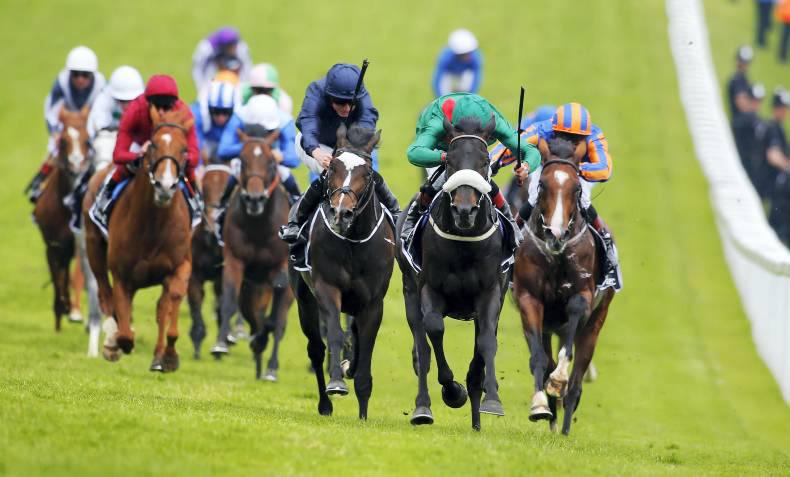BEFORE the horses had returned to the unsaddling enclosures after the Derby, two schools of opinion were forming on the ride given by Ryan Moore to the favourite US Army Ranger.
In the immediate aftermath, judging on just the visual impression, twitters and texters were damning. “Bad ride,” “too much to do”, “bring back JOB,” went a few comments. The opinion was given more impetus by John McCririck’s appearance on the ATR Sunday Forum, while Chris McGrath and Chris Cook were more reluctant to condemn.
Then the more reasoned analysts came with the slide rules and put up the sectional timings that indicated the pace had been far too fast early on, and those at the front paid for racing prominently. Staying towards the back of the field brought dividends. James Willoughby’s contention was that Moore criticism was “a hopelessly simplistic argument based solely on position, exclusive of the influence of pace.”
The end result justifies the means. Most people, including a twitter poll concluded that no matter how he was ridden, US Army Ranger would not have beaten Harzand, but that still, it was “not a great ride.”
The result and the sectional timings gave Moore fans a way out, it hid any errors that were made as the race progressed.
Hayley Moore on ATR on Tuesday also defended her brother’s ride, contending that it was the right thing to do, settle an inexperienced horse at the back and come through later.
However, you could turn that description back into a criticism.
In a race like the Derby, and with a big field this year, what you want from a jockey is to have his mount in the right position to maximise his chance of winning. Part of that is to ensure the easiest path to the front.
On an inexperienced horse, on just his third run, Moore asked US Army Ranger to do all his fastest running suddenly from the three to the one pole, after having to pull him out around two rivals, get balanced and chase down a five lengths gap running downhill on a track sloping away from him.
In having to switch out round the field to get into the clear, he conceded two lengths to the horse thought to be his biggest rival, Wings Of Desire, (who didn’t prove good enough) as he was initially blocked and had to switch out round Algometer and Humphrey Bogart.
Another rival could have had a much clearer run up the rail as Deauville did, even if he was not good enough in the finish.
Time gurus also contend that a horse can only run at his optimum speed for two furlongs. Once in the clear, US Army Ranger duly hung down the camber as he reacheed top speed and couldn’t get past Harzand, and his run levelled off. Jaytee Jack might have overcome running wide a few hours later in his Derby at Wimbledon, but US Army Ranger couldn’t get ahead.
Through the ages, there was one jockey supreme over the Epsom track. A look back at the traditional Epsom photos that appeared in print after the Derby, you could superimpose Lester’s position on everyone, whether the horse was ultimately was good enough to win or not.
Nijinsky, Empery, The Minstrel, Shotgun and Theatrical entered the straight about three horses off the rail, in the second line of runners, with a clear path to move forward and ready to cover any moves from behind.
In asking his mount, on only his third run, to do all his running, beginning five lengths off what turned out to be his main rival, Moore was not maximising his chances.
Of course had Harzand been withdrawn, Moore would have been hailed for his brilliant judgement. Such are the margins. What is certain is that had Joseph O’Brien given the two horses in the Epsom classics similar rides, there would have been much more criticism by public and pundit alike.
Moore was saved by the clock, but he was lucky. Finding interference on Minding, who won because she was much the best horse, and US Army Ranger’s second place does not absolve him from making two less than inspired rides.
However, he has delivered the goods at Royal Ascot in the last few years and with one pundit recommending to back him blind next week, things may have swung back in his favour this time next week.
Should the two Derby horses meet at the Curragh, we might have a different result and the debate might also be settled.
